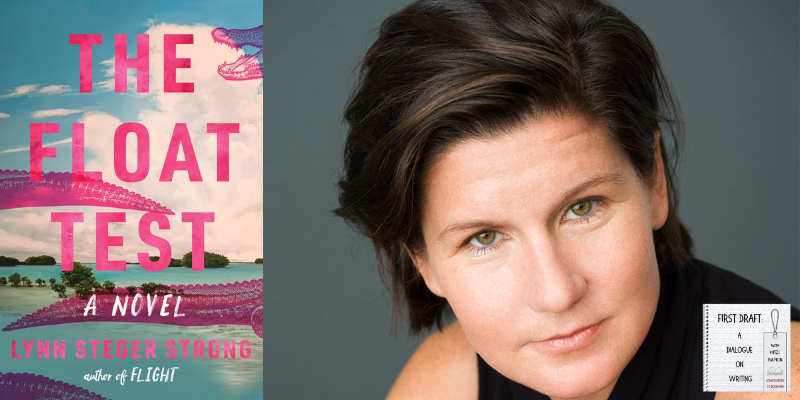
Lynn Steger Strong on Being Porous to the World
In Conversation with Mitzi Rapkin on the First Draft Podcast
First Draft: A Dialogue of Writing is a weekly show featuring in-depth interviews with fiction, nonfiction, essay writers, and poets, highlighting the voices of writers as they discuss their work, their craft, and the literary arts. Hosted by Mitzi Rapkin, First Draft celebrates creative writing and the individuals who are dedicated to bringing their carefully chosen words to print as well as the impact writers have on the world we live in.
In this episode, Mitzi talks to Lynn Steger Strong about her new novel, The Float Test.
Subscribe and download the episode, wherever you get your podcasts!
From the episode:
Mitzi Rapkin: Something present in this book, I think, is the interaction between fact and fiction, and how what we write in fiction might be pieces of our real lives and how do we fictionalize some of that? But also, what are we doing in the world that influences us? For instance, what interaction did you have at CVS this morning that will stick with you in ways that you’re conscious and unconscious of that come out in your next book? And I’m curious about that for you, about being a writer and being in the world and that interaction.
Lynn Steger Strong: I think it’s kind of excruciating to be alive. I think it’s part of our job as writers to be pretty porous to the world. And so, I experience life pretty intensely, almost all of the time. You know, it’s not that hard. First of all, I am really grateful to have friends and community and children. It’s like the Flannery O’Connor idea that fiction is made in the dust, and if you’re not willing to get dusty, then you’re not willing to write great fiction, which is to say, I find it very hard and scary a lot of the time to move through the actual world and also it feels completely essential to me to touch and feel the realities of the world consistently so that when I go back to my fiction, the remnants of that are inside of it. I sort of posit this binary to students in class, like there’s the idea of the thing and the thing itself. And actually, I think some writers are really interested in the idea of the thing, and that’s totally fine. That can be really interesting fiction, but I’m very interested in the thing itself. I want you to feel in my fiction that you can sort of touch and taste the world as the character is moving through it. And as a result, I think I’m obligated to, you know, move through the world. And I do think it all kind of sticks with you. You know, like a woman at drop-off who touches her hair in a certain way. And you’re like, Oh, she must be sad, right? And then I and then I think probably I’m wrong, right? Like, probably that 20 minutes I spent worrying about this woman who doesn’t need me to be worried about her, and it accomplished nothing, like her gesture is going to stick with me, and then her gesture is going to be in my book. And so, I do think it’s sort of essential. One of our main jobs as writers every day when we’re in the world is to pay very close and careful attention. And then I do think it kind of appears in that moment where a character is forming and she’s feeling a thing, and you’re like, Yeah, but what does that look like on her body? And then that woman at pickup appears.
***
Lynn Steger Strong is the author of the novels Hold Still, Want, Flight and The Float Test. Her non-fiction has appeared in The New York Times, Los Angeles Times, New York, The Paris Review, Time, and elsewhere. She has taught writing at The Pratt Institute, Fairfield University, Catapult, and Columbia University and will be the Visiting Fiction Writer at Bates College for the 2022-2023 school year. She was born and raised in South Florida.
First Draft: A Dialogue on Writing
First Draft: A Dialogue on Writing is a literary podcast produced and hosted by Mitzi Rapkin. Each episode features an in-depth interview with a fiction, non-fiction, essay, or poetry writer. The show is equal parts investigation into the craft of writing and conversation about the topics of an author’s work.



















